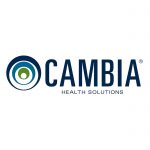A recently introduced federal bill aims to dramatically reduce red tape for Medicare-certified home health providers — at least for now.
In May, Rep. Nydia M. Velázquez — a Democrat from New York — introduced a bill that would allow home health providers to be reimbursed for services without adhering to the in-person face-to-face Medicare referral requirement. The Improving Home Health Services Act (H.R. 7006) has 11 House co-sponsors, all of whom are also Democrats.
Currently, home health providers need a written referral from a doctor to begin care with a new patient and receive reimbursement under Medicare. While providers have long viewed the process as cumbersome, the process has become especially difficult as of late due to the COVID-19 emergency, a time when many physicians’ offices have shut down.
“Even under normal circumstances, it can be difficult for home health agencies to obtain a signature from an ordering physician or non-physician practitioner,” Velázquez said in a statement. “As the pandemic has taken hold of our health care system, the challenge of obtaining a signature has increased tenfold. Doctors and clinics alike have closed their offices in order to minimize in-person interaction.”
Want to publish your own articles on DistilINFO Publications?
Send us an email, we will get in touch with you.
If passed, the bill would temporarily allow Medicare billings to be based on verbal orders and certifications. The hope is that, by streamlining home health paperwork even further, officials can help curb the spread of the virus.
There are over 12,000 home health agencies within the United States, serving a total of 4.5 million people as of 2019. Of the Medicare beneficiaries receiving home health services, more than 80% have three or more chronic conditions; nearly 28% have two or more limitations related to activities of daily living (ADLs).
“Patients served by home health care tend to fall into the category of ‘at risk’ individuals who may be especially susceptible to severe health effects from COVID-19,” Velázquez said. “Now, more than ever, we need to serve these vulnerable members of our community. We must ensure that they have access to necessary health care in their home to further reduce risk of transmission.”
In general, physicians have no incentive to sign orders for home health care services in a timely fashion. As a result, providers are often left spending time and resources trying to connect with those physicians before caring for their patients, according to J’non Griffin, president and owner of Carbon Hill, Alabama-based consulting company Home Health Solutions LLC.
“The [home health] care community would welcome any relief burden during this time, especially when it comes to billing for patients without actual signed orders,” Griffin told Home Health Care News in an email.
If passed the bill would inherently cut through red tape and give providers a chance to deliver care to their patients sooner. But there’s also a potential downside to the legislation, she cautioned.
“If this bill is passed, it would allow a verbal authorization so that the agency will be able to bill,” Griffin said. “While this is beneficial for agencies, as always, it opens the avenue for fraud and abuse from other providers, who may take advantage of this.”
So far, the Improving Home Health Services Act has already received support from the Home Care Association of New York State (HCA-NYS) and the National Association for Home Care and Hospice (NAHC, among other advocacy organizations).
“The Improving Home Health Service Act supports home health agencies and physicians by enabling both to maximize direct service to patients instead of time spent on paperwork exchanges between them,” HCA-NYS President Al Cardillo said in a statement. “This legislation will help avoid Medicare payment delays for in-home services provided to beneficiaries at a time when New York’s home health agencies are already reeling financially as a direct result of the COVID-19 pandemic. We applaud Congresswoman Velázquez for her support.”
The Visiting Nurse Service of New York (VNSNY) — the largest nonprofit home- and community-based health care provider in the country — likewise expressed its support for the legislation. Since the start of the public health crisis, VNSNY has cared for more than 2,000 COVID-positive patients.
“The requirement that home health agencies obtain signed documents from ordering clinicians who are largely unavailable, seriously hampers our ability to get reimbursed for the expert care we are providing,” VNSNY Marki Flannery said in a statement.
H.R. 7006 was last referred to the U.S. House Committee on Ways and Means, and the Committee on Energy and Commerce.
Source: Homehealthcare News







